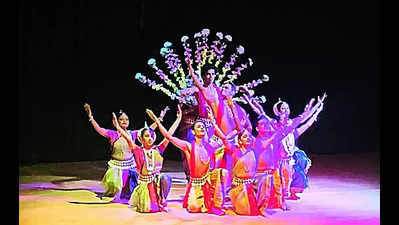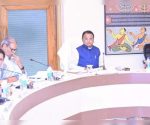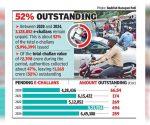OSUK Annual Function: A Vibrant Celebration of Odia Culture in the UK | Bhubaneswar News


Bhubaneswar: For most Odias living abroad, chances to speak in their mother tongue are limited to their families or when they meet each other during functions and festivals. It’s one of the reasons why Odias from across England attend the annual convention of Odisha Society of UK (OSUK).
Held in Cardiff, Wales on Aug 24 and 25, the event was marked by Odia bonhomie over food, showcasing of tradition through dance, music, traditional games and sports or merely sharing nuggets of their lives over casual interactions.

OSUK was established in 1979 by a group of Odia doctors in UK who wanted to set up a community group. Over the years, Odias from other professions have joined in taking the number of registered members to around 250. The number of floating members sometimes touches 500.
“OSUK began with 10-15 families of doctors from SCB, MKCG and VSS medical colleges. One of the initiators was Dr Padmalochan Panigrahi, who is now in his 80s, but continues to attend OSUK gatherings,” said Dr Aditya Singh, outgoing secretary of the society.
The organisation has grown over the last 15 years because first-generation Odias want their children to become acquainted with their roots as most are not able to visit Odisha frequently. Members organise chitta (rangoli) and puchi (traditional sport) competitions and explain their significance. “Our children are very curious to find out about the connection of these games with Odia culture and we explain it to them,” said Durgesh Nandini Mishra, an IT engineer from Manchester.
“Plays and skits in Odia are staged for which members practice months in advance. A skit, ‘Pana Dokan’ (betel shop), on the current political situation in Odisha, India and UK is staged every year. New members join hands with seniors to perform it every year,” said Singh.
This year, OSUK invited Odissi danseuse Aruna Mohanty and her troupe to perform. “Some OSUK members trained in Odissi also joined them. Our children are very keen to learn about our artistic culture,” said Singh.
Some youngsters are made young ambassadors of OSUK like Anuj Mishra (20), an English literature student at Oxford University, who has been exposed to ‘kabita patha’ (recitation) and Odissi, among other things Odia.
As a journal secretary, Anuj and others bring out a souvenir, ‘Nabajagarana’, on the movement for a separate Odisha based on language. “I felt the movement that sought to define Odia culture while being influenced by the British rule, was deeply similar to our conundrum in OSUK, as we try to hold onto and redefine our culture while living in England,” said Anuj.















